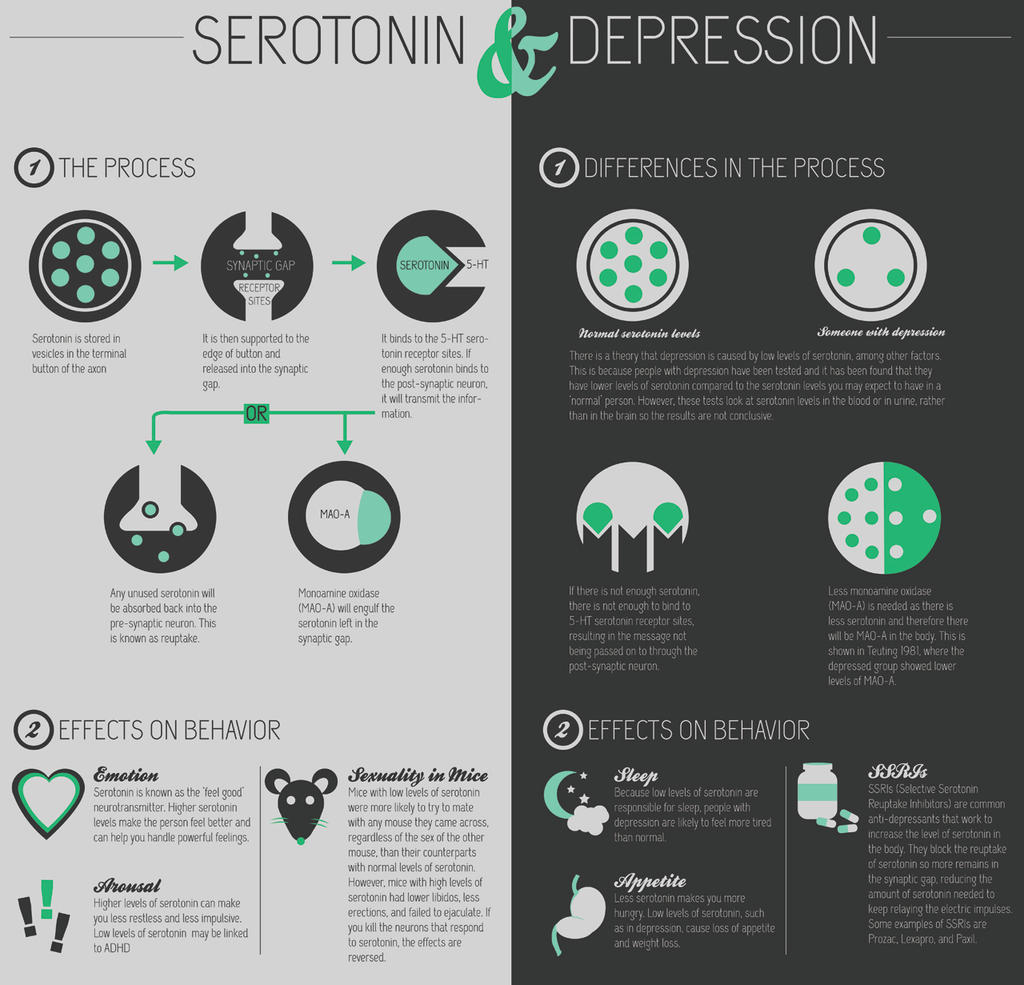Serotonin is a hormone found in our digestive tract, the Central Nervous System (CNS), blood platelets and the Pineal Gland. It is also known as 5-hydroxytryptamine, which is often abbreviated to 5-HT. Serotonin’s chemical formula is C10 H12 N2 O.
Since it was identified as a serum agent in the blood serum that affected vascular tone, scientists called it serotonin (serum that gives tone).
About 80% of our body’s total serotonin is in the gut, in the Enterochromaffin cells – where it regulates intestinal movements.
The rest is synthesized in the Serotonergic Neurons in the Central Nervous System. Serotonin cannot cross the Blood-Brain Barrier. Therefore serotonin that is used inside the brain must be produced within it.
Serotonin is one of neurotransmitters which are chemical substances that transmit nerve impulses across synapses; synapses are the spaces in between nerve cells.
According to researchers at Macalester College, the absence of serotonin has been associated with greater aggressive behavior. Bristol University in England assures that serotonin is involved in: appetite, sleep, memory, learning, temperature, and mood.
Princeton University also mentions that Serotonin is known as a happiness hormone because it contributes to feelings of well-being, behavior, muscle contraction, cardiovascular function, endocrine regulation, regulating aging, bone metabolism, and wound healing as Serotonin is a growth factor for some types of cells.
